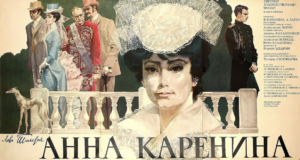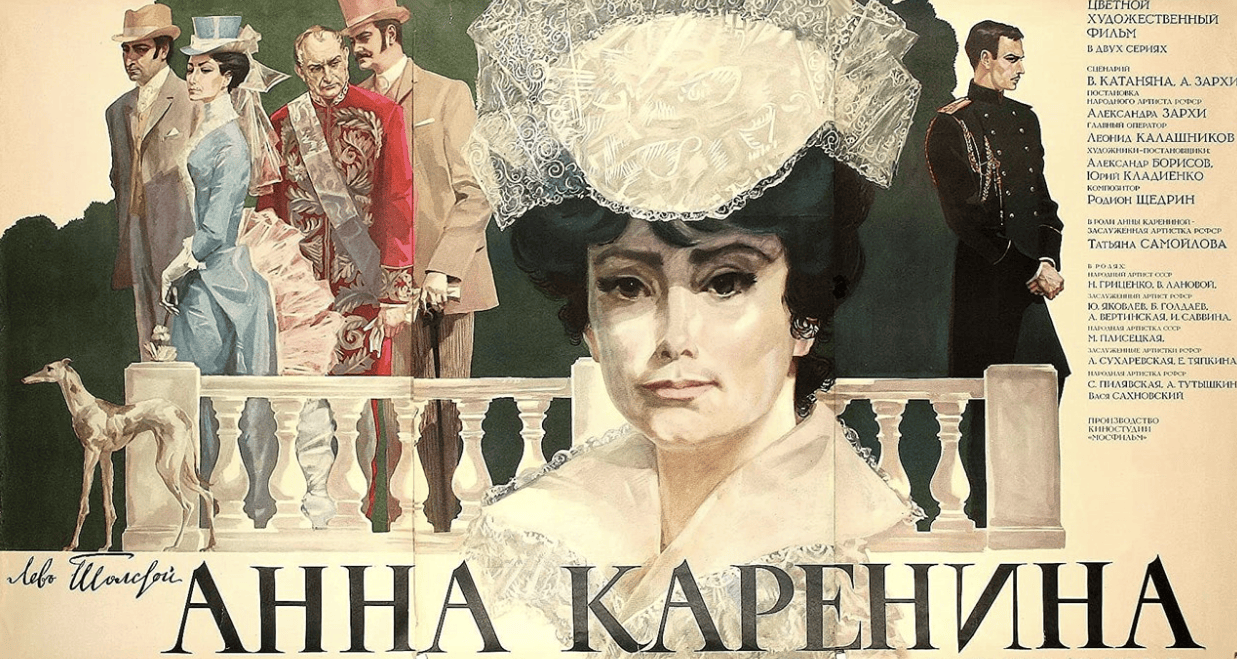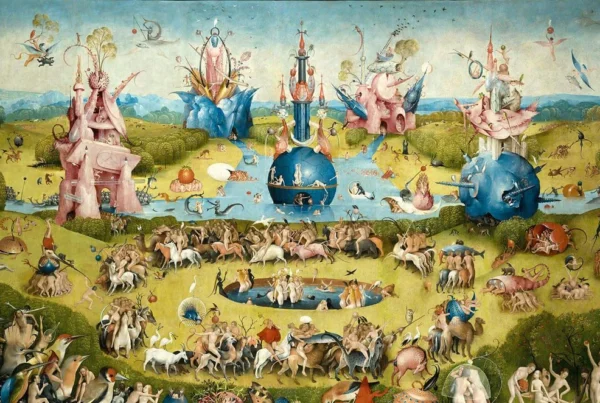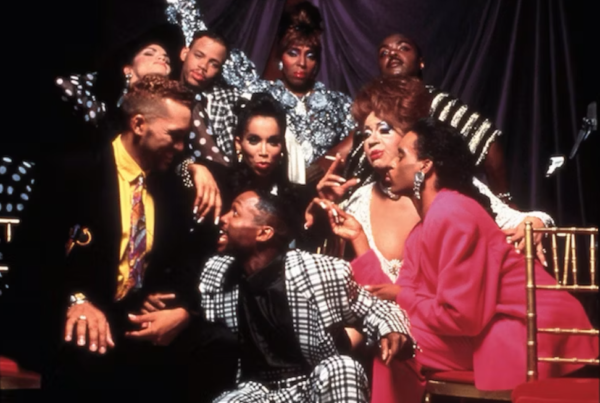In Tolsoty’s classic, Anna Karenina, is the societal expectation of women to just be a mother encouraged or critiqued? How much have these representations of femininity changed in Western contemporary society?

When I was 17, I read Anna Karenina for the first time and quickly fell in love with the characters, themes, and dramatic plot. I was so captivated by Tolstoy’s writing that I blinded myself to aspects of the text that, upon re-reading, have transformed my initial experience with the narrative. One of these aspects is Tolstoy’s portrayal of women and the dichotomy between individuality and motherhood. When I re-read it at 20, the depiction of what “ideal femininity” looked like felt more pertinent, inciting me to question my own perception and experience with it. Even though the reality of motherhood feels quite distant from me, the social valorization of it has not necessarily waned with time. The interlacing braid of motherhood and femininity was tightly woven in Tolstoy’s century, yet still remains intact today.
To summarize, Anna Karenina follows the plot of the eponymous Anna, who perceives the limitations of domestic life in mid-19th century Russia and engages in a passionate love affair with the handsome Vronsky. Being forced to choose between her son and her lover, she becomes socially ostracized and eventually amputated from life altogether.
What has been bothering me about “Anna Karenina” is the notion of whether Tolsoty is critiquing Anna for her rejection of maternity or critiquing Russian high society for not allowing Anna to simultaneously be a mother and an individual beyond the confinement of motherhood. Throughout the text, it seems as if Tolstoy supports traditional values and social roles subjected to women, namely that of motherhood. Given that the text was written in 1878, this limited perception of women’s roles in society was the dominant global perspective. Even though feminism was in its embryonic form, the Russian intelligentsia was heavily preoccupied with “the woman question”. Facets to this question (ironically written mainly by and for Russian intellectual men) included inquiring into women’s position in the workforce, education, politics, and their prioritization of the household. Tolstoy both condemns and encourages women’s retention of domestic duties through his diverse female characters; their fates being singularly dependent on if they accepted or renounced motherhood. Tolstoy ambivalently critiques society through his female character’s fates, while still regarding the “good” mother as one who abandon’s non-domestic desires.
When women conform to the rigid social expectations of femininity and maternity, they sacrifice the pursuit of their interests outside the domestic realm. Women in high-society Russia were expected to marry into wealth, raise healthy children, and present themselves as valuable assets to their husbands at social outings. If women were unable to perform this role, Anna’s fate became the consequence: she is deemed as a “failed woman” by society for failing her maternal duties. Thus, motherhood in 19th century Russina high society was seen as a requirement rather than an option.
Tolstoy condemns this fatal societal expectation when Dolly, Anna’s stepsister, acknowledges that motherhood can be ugly and lead to an evisceration of the self. Throughout the text, Tolstoy characterizes Dolly as a voice of reason, whose opinions are a product, not of blinded passion, like Anna, but of reasonable and distant consideration; in this regard, Dolly represents the common woman. When Dolly leaves Levin’s estate to visit Anna, she deviates briefly form maternal conventions as she “looks back at the whole of her life in those fifteen years of marriage” and sees only “pregnancy, nausea, dullness of mind, indifference to everything, and, above all, ugliness” (607). For Dolly, the perception of motherhood as the sole provider of fulfillment is debunked. Dolly sees motherhood not as something that gives, but that takes; it takes her pleasure, intelligence, her interests in the world around her, and most notably, her beauty. The fact that Dolly’s beauty is deeply connected to her self-worth emphasizes the superficial importance society places on a woman’s physical appearance. Dolly’s expression of “looking back at her life” also suggests that being a mother reduces the prime of a woman’s life to her past. Her admission of the ugliness of motherhood betrays the little room that women experience for self-exploration because the expectation of fulfilling maternal duties are all-consuming.
Yet, Tolstoy subtly promotes the importance of motherhood when Dolly leaves the estate and suddenly is brimming with maternal gratitude. After attempting to convince Anna to finalize her divorce from Karenin, Dolly abruptly experiences memories of her home and children “with some new radiance, some special loveliness she had not known before” (641). This new light being shed on Dolly’s familial world results from the darkness she sees Anna’s life enveloped in; the darkness caused by the stifling domestic expectations that have backed Anna into a social corner. To Dolly, pregnancy may be ugly but Anna’s situation is uglier. Even though this amplifies Anna’s tragic fate, it also complicates Tolstoy’s critique of society because Dolly ultimately achieves happiness at the end of the novel. After returning to her family, she is imbued with new-found joy for the maternal sphere and repairs her marriage with her husband. Is Dolly’s example the one that Tolstoy encourages women to follow?
Yet, Tolstoy also sympathizes with the suffering that Anna endures when she confesses “It is only [my son and Vronsky] that I love, and one excludes the other. I can’t have them together, and that’s the only thing I want” (620). Anna is clutched in a personal and social deadlock because society requires her to choose between marrying the man she loves or divorce the one she despises. This torment causes her to experience a relentless state of humiliation, tears her away from her son, and even drives her to consume morphine as the only means of relief. The sacrifice that Anna is required to make between Vronsky and her son can be applied more generally to society’s denial of women to be both an individual and a mother. Since Anna wants both, she must be punished with the impossible task of having to choose; this choice spiritually, and eventually physically, splits her in two. Dolly, wanting to avoid this social fate, contends herself with the prospect of being just a housewife, not needing to decide between motherhood or the pursuit of individuality.
Understanding how women are forced to make a trade-off between being a mother or an individual places Anna’s suicide in a more sympathetic light. Tolstoy’s seeming contradiction between juxtaposing the ugliness and beauty of motherhood emphasizes Anna’s tragic fatal condemnation; she is a martyr of the denial to choose. However, Tolstoy’s endorsement of motherhood through the lens of Dolly makes his position on the role of the mother more ambivalent as Dolly’s opinions are valued as an indicator of moral behavior. Despite acknowledging women’s plight, and sympathizing with Anna’s fate, Tolstoy ambiguously conforms to the values of the society he is criticizing by implying that women’s fulfillment of the maternal role is conducive to happiness. The novel ends with a closeup of the couples who have achieved fulfillment, namely Kitty and Levin and Dolly and Oblonsky. Illustrating that happiness lies within the familial and domestic realm undermines Tolstoy’s critique of the stifling social limitations that have literally pushed women who desired more over the edge.
This problem of the mother-human tradeoff that influences the fate of Tolstoy’s characters is not contained by the boundaries of fiction but is relevant to contemporary women’s lives, their bodies, and their ambitions. Tolstoy approached the dichotomy with sympathy and nuance, a trait that contemporary western politics has not granted women. In June 2022, The United States Supreme Court overturned Roe v Wade, making abortions a federal crime in 21 of its states. Now, for those states, motherhood is forced upon women to the extent that any semblance of choice is eradicated. The United States is therefore regressing into a nation that is arguably more oppressive than the one Tolstoy was writing within; the US doesn’t only critique women who don’t choose the path of maternity, they incriminate them. This endorsement of women’s roles being limited to traditional values of maternity is also perpetuated by influential media stars like Andrew Tate. Tate, whose videos have been seen more than 250 million times, espouses the idea that women belong at home, shouldn’t drive, and are men’s property. Despite Tolstoy writing Anna Karenina almost two centuries ago, men’s need to confine women to a state that eradicates their individuality is all-too-real in our day. We shouldn’t have to endure Anna’s fate as a consequence of renouncing these patriarchal expectations, but then again, we shouldn’t have to face the expectation to choose in the first place.
Other posts that may interest you:
- Insight into the Warwick Economics Summit: A Discussion on the UK’s Economic System with Sir Howard Davies
- La grève des scénaristes et des acteurs: Hollywood en péril ?
- A forbidden fruit — nourished in shadows,
- Paris, December 21
- At your mercy at the coffee shop
Discover more from The Sundial Press
Subscribe to get the latest posts sent to your email.





